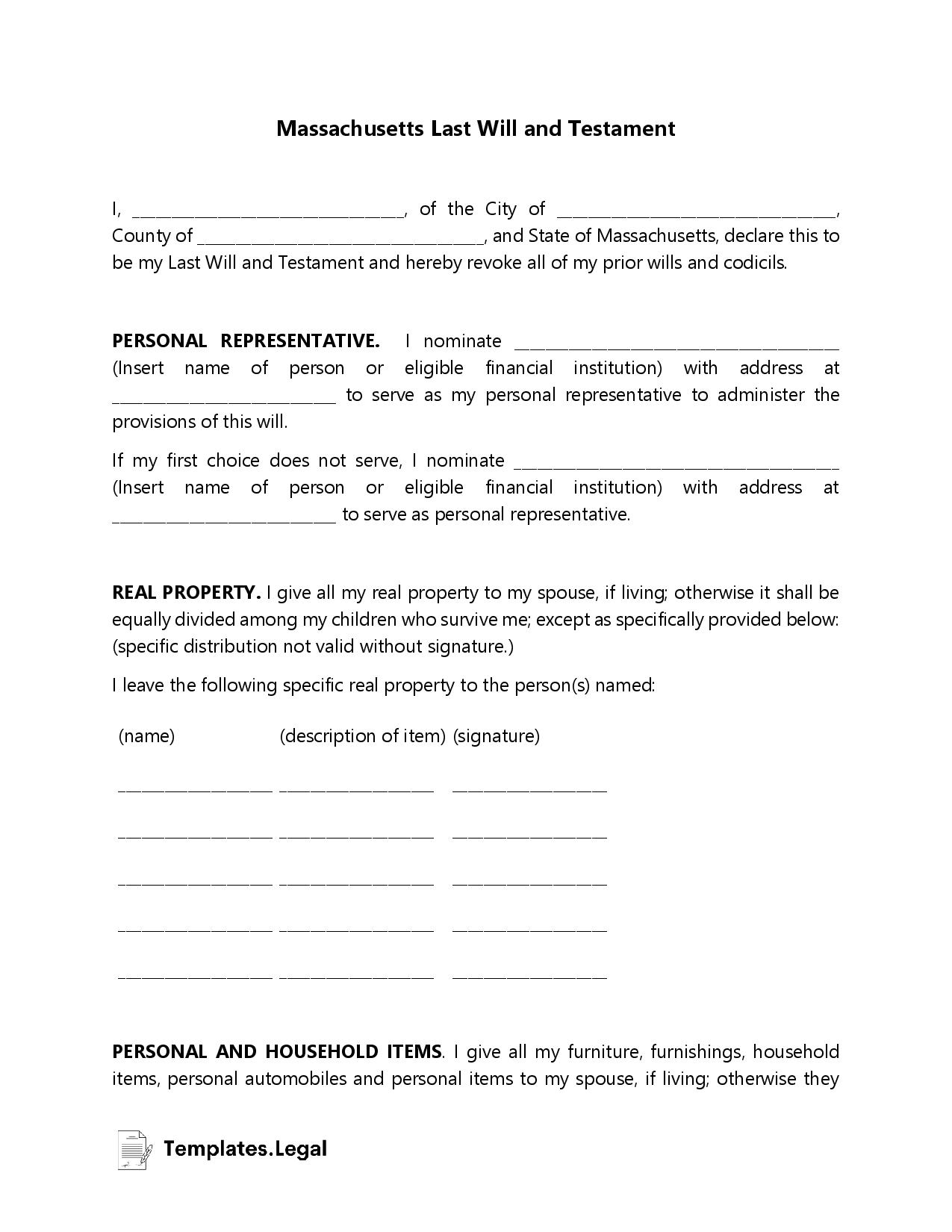Massachusetts Last Will and Testament
Making a last will and testament in Massachusetts is a straightforward process, but there are some things to know before you get started.
After deciding upon your beneficiaries, what you will leave them, and the executor, you must make the will legal. Let’s look at the next steps of legalizing a will and testament in Massachusetts.
Massachusetts Last Will and Testament Template
How To Make A Will In Massachusetts
Once you have written a will, the next requirements involve signing the will in front of at least two witnesses, who must be 18 years or older and may not be beneficiaries of the will.
You don’t need an attorney to create a last will in Massachusetts. You can even write it yourself. Testators should review their most recent will every 5–7 years for necessary amendments.
Massachusetts does not currently accept digital-only wills (also known as electronic wills). You’ll need to print out a will you create on the internet.
You must file your completed will with the court in the county of your residence. The court will decide on the legality of the will and ensure that all items in it are followed.
What Happens If I Die Without A Will In Massachusetts?
If you die without a last will and testament in Massachusetts, your assets will be divided according to state law. Everything will go to your next of kin (spouse or next blood relative).
What Are The Signing Requirements in Massachusetts?
A witness must be non-beneficiaries 18 years or older and competent to testify. Those two witnesses must also sign the will in the presence of the testator.
If you make changes, you’ll need to destroy the old copy and create a new one. Get it notarized to make sure it’s legally binding.
Can You Change A Will In Massachusetts?
Yes, you can change your will in Massachusetts by destroying the old will and creating a new one. Make sure to get a new will notarized to make sure it’s legally binding. Make amendments by using a codicil form.
FAQ: Last Will and Testament in Massachusetts
Here are some typical questions related to creating a will in Massachusetts.

